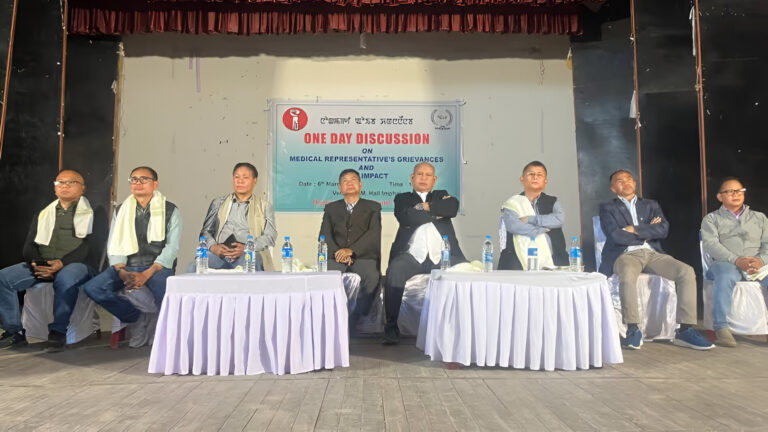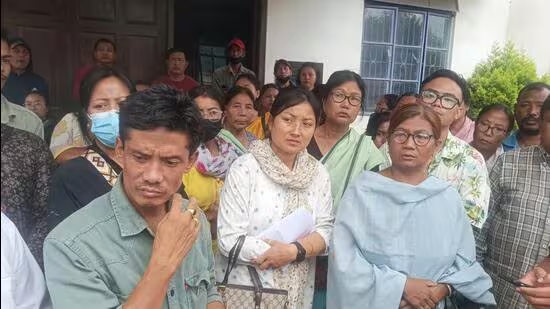Thadou Community Backs NRC and War on Drugs in Manipur
Summary
The Thadou community in Manipur has publicly supported both the implementation of the National Register of Citizens (NRC) in the state and the government’s ongoing “War on Drugs” campaign. This decision, announced at a recent Thadou convention, emphasized their backing for efforts that prioritize the interests of Indian citizens while addressing documentation concerns for tribal residents. The community urged the government to consider the unique challenges faced by tribal groups regarding legal documentation and to enhance community engagement in anti-drug efforts.
Full Article
Introduction: A Community Takes a Stand
In Manipur, where community-driven initiatives and government policies frequently intersect, the Thadou community’s recent endorsement of both the National Register of Citizens (NRC) implementation and the “War on Drugs” campaign marks a powerful stance. These dual initiatives are essential components of the state’s broader strategy to secure national interests and ensure public safety, yet they come with unique challenges—particularly for tribal communities.
The Thadou community, in showing their support, has also voiced specific concerns regarding the potential impact of NRC on tribal residents and advocated for more structured community involvement in anti-drug efforts. Their stance offers an insightful look at how communities like theirs are seeking to work alongside the government while ensuring the protection and well-being of their own people.
Why NRC Implementation in Manipur is Significant
The National Register of Citizens (NRC) is a nationwide exercise aimed at identifying and documenting Indian citizens to prevent illegal immigration. Though it has sparked debates, supporters believe that implementing NRC in Manipur could help protect local interests, especially in border states where immigration remains a pressing concern.
The Thadou community’s endorsement of NRC reflects their commitment to safeguarding indigenous communities in Manipur. By supporting the NRC, they believe the initiative can secure citizenship rights for bona fide residents and provide a framework for addressing concerns related to illegal immigration.
However, there are complexities tied to the NRC process that make it a challenging endeavor for tribal communities. As a historically underserved group, tribal communities often lack the necessary documentation, which raises concerns about their ability to prove citizenship. This concern is not unfounded; a lack of proper documentation could result in the exclusion of many bona fide citizens who simply lack access to adequate records.
Addressing Documentation Concerns for Tribal Communities
One of the Thadou community’s core requests is for the government to consider the unique documentation challenges that tribal residents face. In regions where access to legal resources is limited, and historical records may not always be accurately maintained, the likelihood of incomplete documentation is high. As a result, implementing NRC without adjustments could unfairly exclude tribal people who are, in reality, legitimate citizens.
To mitigate this, the Thadou leaders have urged officials to develop clear guidelines on acceptable proof of residency and citizenship, with particular provisions for tribal individuals. This effort would help ensure that indigenous communities are protected from undue hardship. A more inclusive and understanding approach to documentation could prevent potential conflicts and preserve social harmony.
The community also requested a preemptive strategy from authorities, emphasizing that adequate notice and education about permissible documents could empower tribal residents to secure their records before the NRC exercise begins. This proactive approach could alleviate anxiety among tribal groups and create a more fair and equitable NRC process.
Thadou Support for Manipur’s “War on Drugs” Campaign
Alongside their support for NRC, the Thadou community has thrown its weight behind the Manipur government’s “War on Drugs.” With drug abuse posing a significant threat to social stability and public health, this anti-drug campaign aims to curb drug-related crime, addiction, and environmental damage caused by illegal plantations in the state.
The drug menace in Manipur, fueled by poppy cultivation and trafficking, has left a severe mark on the state’s younger generation and local communities. The Thadou leaders believe that supporting the “War on Drugs” campaign could serve as a protective measure for the entire community, particularly the youth. Their endorsement of this campaign reflects their acknowledgment of the critical need to secure a healthier future for upcoming generations.
Yet, they also highlighted the importance of strategic, well-coordinated anti-drug efforts that emphasize community participation. By involving local communities more actively, they believe the campaign could see greater success, as residents are best positioned to identify and report drug-related activities in their regions.
Community Engagement as a Solution to the Drug Crisis
For the Thadou community, supporting the War on Drugs isn’t simply about combating addiction—it’s about empowering the community to take control of its future. In their appeal to the government, Thadou leaders suggested that increased collaboration with local organizations could maximize the effectiveness of the campaign. When residents become active participants in such initiatives, the chances of long-term success improve significantly.
Community engagement could take various forms, such as:
- Educational Campaigns: By spreading awareness about the dangers of drug abuse, local leaders can inform youth and families about the risks of substance abuse. Schools, community centers, and churches can be leveraged as information hubs, creating safe spaces for discussions on drug prevention.
- Community Watch Programs: Encouraging neighborhoods to keep an eye out for suspicious activity could help intercept drug trafficking operations early. Such programs foster accountability within the community, deterring criminal activities and promoting a sense of shared responsibility.
- Alternative Livelihood Initiatives: Since illegal drug trade is often linked to economic hardship, offering sustainable economic alternatives could deter individuals from resorting to illegal activities. Agricultural programs, vocational training, and small business grants could provide better options for local residents, reducing the appeal of drug cultivation.
Looking Ahead: Long-Term Goals for the Thadou Community
The Thadou community’s support for NRC and the War on Drugs isn’t limited to immediate results. Rather, it reflects a forward-thinking approach to the challenges that lie ahead. They envision a state where communities are safeguarded from external threats, be it illegal immigration or the drug trade, and where residents can prosper without fear of social or economic instability.
As Manipur continues to develop, the Thadou community remains hopeful that their active involvement and partnership with the government will yield positive, sustainable changes. They are keen to see policies that recognize the unique circumstances of indigenous and tribal groups, policies that prioritize their safety and inclusion without imposing additional hardships.
Conclusion: A Unified Vision for a Safer, Stronger Manipur
In a world where challenges seem to grow by the day, the Thadou community’s commitment to supporting NRC and the War on Drugs underscores a vision of resilience and unity. Their stand is not just about protecting their own; it’s about fostering a safer and more inclusive Manipur for everyone.
Their dual support showcases a balanced perspective, highlighting both the need for security and the importance of compassion. By voicing their concerns and encouraging collaborative solutions, the Thadou community exemplifies the strength that comes from a well-informed, united populace.
FAQs
- Why does the Thadou community support NRC implementation in Manipur?
They believe it safeguards the rights and welfare of legitimate citizens, helping protect local communities from illegal immigration concerns. - What are the Thadou community’s concerns about NRC?
The community worries that strict documentation requirements could disadvantage tribal residents lacking access to formal records. - How does the Thadou community view the War on Drugs?
They see it as essential for public health and safety, especially in combating the influence of drugs on young people. - What role can the community play in the War on Drugs?
Increased community engagement can strengthen anti-drug efforts through education, vigilance, and economic alternatives to illegal activities. - What are the long-term hopes of the Thadou community for Manipur?
They aim for a secure, inclusive state where citizens can thrive free from issues related to immigration or drug abuse.


